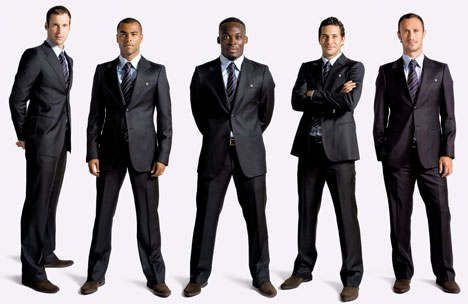We all like to dress up from time to time, but what if your dream is to dress up on a daily basis? Do you often fancy yourself as a big shot, that gets to wear a new suit every day for the rest of his big shot life? Do you see yourself at a huge mahogany desk, tending to important problems like the important person that you are? Is your dream office a huge room with windows so big they’re actually walls?
Well then, the following couple of jobs may or may not give you all that. But they’ll sure as hell let you wear a suit to work.
Table of Contents
Lawyer
With an estimated $112,760 per year, lawyers advise and represent individuals, businesses, or government agencies on legal issues or disputes. If you’re willing to work hard, put in long hours and actually give a damn about your clients, then you’re very likely to become a great lawyer with his own gigantic office.
Whether representing clients in court or consulting on legal matters, lawyers and judges are expected to exude authority and expertise.
- In the Courtroom: Attorneys in tailored suits project confidence and command respect from juries, judges, and opposing counsel. A well-dressed lawyer can make a powerful first impression, influencing how their arguments are received.
- Tradition Meets Professionalism: In legal settings, the suit is not merely a choice; it is a tradition. The solemnity of the courtroom environment necessitates formal attire to reflect the gravity of legal proceedings.
- Dress Code Standards: Many law firms uphold strict dress codes, often specifying dark suits for men and conservative business suits or dresses for women. Accessories like ties, cufflinks, and professional shoes complete the polished look.
CEO
The CEO (Chief Executive Officer) is the highest ranking executive in a company whose main responsibilities include developing and implementing high-level strategies, making major corporate decisions, managing the overall operations and resources of a company, and acting as the main point of communication between the board of directors and the corporate operations. The CEO will often have a position on the board, and in some cases is even the chair. Prepare to be a good communicator, decision maker, leader, and manager.
As key decision-makers, their appearance reflects their authority and competence.
- Why Suits Matter: Executives often interact with stakeholders, clients, and investors, making a polished appearance crucial for building trust and rapport.
- Cultural Significance: In many companies, the suit is seen as a marker of ambition and achievement. Employees often aspire to “suit up” as they climb the corporate ladder.
- Variety in Attire: While traditional dark suits dominate boardrooms, modern executives are experimenting with styles—think tailored fits, bold colors, or patterned ties—that showcase their personality while maintaining professionalism.
Finance and Investment Professionals
The world of finance revolves around trust, precision, and high-stakes decisions. Whether you’re a banker, stockbroker, or investment analyst, wearing a suit is part of establishing credibility and professionalism in this high-pressure industry.
- Building Trust: Financial professionals manage significant assets and advise clients on critical investments. A suit underscores their role as responsible and reliable advisors.
- First Impressions Count: From pitching investment strategies to negotiating deals, suits help financial experts convey competence and authority.
- Global Uniform: Whether in New York, London, or Tokyo, the financial industry maintains a universal culture of formal dressing. A well-fitted suit serves as a badge of honor for professionals navigating global markets.
In an industry where appearances and perceptions often influence decisions, the suit is a non-negotiable aspect of a finance professional’s daily attire.
